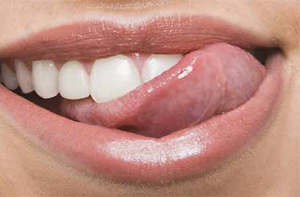Jun 5: Ever wondered why you do not bite your tongue even when you do not pay attention to your chewing? Interconnected neurons in the brain that coordinate the movement of the tongue and jaw usually keep the tongue safe from injury, a new study said. “Chewing is an activity that you can consciously control but if you stop paying attention, these interconnected neurons in the brain actually do it all for you,” said Edward Stanek from Duke University School of Medicine in the US.
 Chewing requires a complex interplay between the tongue and jaw, with the tongue positioning food between the teeth and then moving out of the way every time the jaw clamps down to grind it up.
Chewing requires a complex interplay between the tongue and jaw, with the tongue positioning food between the teeth and then moving out of the way every time the jaw clamps down to grind it up.
Previous studies have shown that movement of the muscles in the jaw and tongue are governed by special neurons called motoneurons and that these are, in turn, controlled by another set of neurons called premotor neurons.
But the exact nature of these connections — which premotor neurons connect to which motoneurons — was not defined. For the new study, researchers used a special form of the rabies virus to trace the origins of chewing movements in mice






Comments
Add new comment